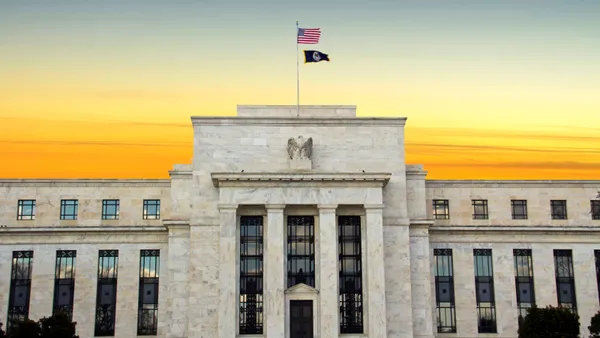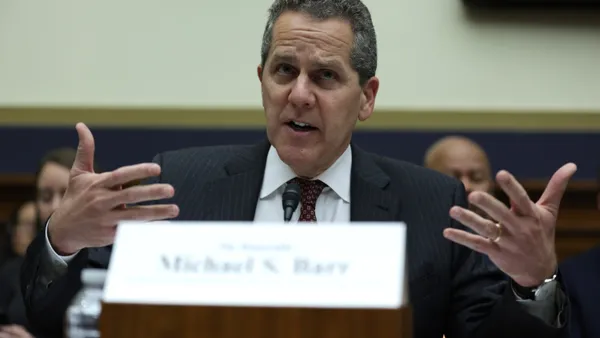Figure is trying to become the first U.S. firm to issue an interest-bearing stablecoin that would be regulated as a security, according to paperwork the startup filed in October.
Figure wants to register the token under the category of “face-amount certificates,” a sort of fixed-income security, and make the stablecoin available to U.S. retail and institutional investors through blockchain technology, according to a draft registration statement submitted to the Securities and Exchange Commission.
The offering would put Figure in a field dominated by the likes of Tether and Circle, but those companies’ tokens do not generate interest but rather are used simply to settle transactions.
Stablecoins are typically pegged to the U.S. dollar. Figure’s token, by contrast, would be redeemable at 1 cent per certificate, rather than $1, and interest would accrue daily and be paid monthly to the user, the filing indicated.
Interest would come from reserves, such as treasury, commercial paper and corporate debt, according to the filing. Users would be subject to a know-your-customer process before being issued the tokens.
Figure is also filing paperwork to register an offering — called Figure Installment Certificates — that would target investors who want to earn yields while holding the assets in a “digital format,” the company said.
The offering may be a long shot. Michael Barr, the Federal Reserve’s vice chair for supervision, has said as recently as September that he is “deeply concerned about stablecoin issuance without strong federal oversight.”
Lawmakers, meanwhile, disagree over which agency should police the burgeoning technology. Legislation sponsored by House Financial Services Committee Chair Rep. Patrick McHenry, R-NC, would enable stablecoin issuers to receive licensing at the state level. But a version of the bill proposed by the panel’s ranking member, Rep. Maxine Waters, D-CA, gives more responsibility to the Federal Reserve, allowing the central bank to deny registration of a stablecoin issuer approved at the state level.
The SEC and the Commodity Futures Trading Commission, meanwhile, seemingly have been locked in struggle over who will ultimately be the foremost regulator of cryptocurrency. CFTC Chair Rostin Behnam pushed in December 2022 for a regulatory framework for digital assets following the collapse a month earlier of crypto exchange FTX. Behnam said he thought the CFTC should be in charge of that oversight.
SEC Chair Gary Gensler has also said he expects his agency to be the crypto market’s primary regulator because he views most tokens as securities. The agency has opened two court cases within the past week against companies — Binance and Coinbase, specifically — whose offerings the regulator argues are securities.
Figure’s digital asset arm, Figure Markets, plans to raise $50 million at a valuation of $250 million, with Jump Crypto as a potential lead investor, Bloomberg reported Monday, according to two people familiar with the matter.












